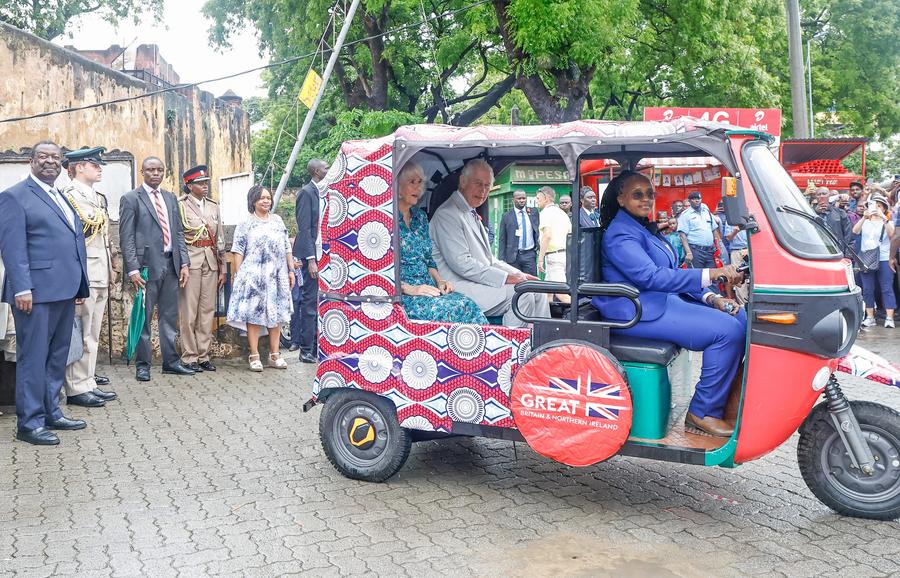In recent years, Chinese-made motor rickshaws, popularly known as tuk-tuks, have gradually held sway at the yard, which boasts more than 50 donkeys and carts.
NYERI, Kenya, Aug. 11 (Xinhua) -- Two km outside the central Kenyan town of Nyeri's bustling streets along the busy highway linking the town to Nairobi, the Kenyan capital, one cannot fail to notice the well-tended giant evergreen trees under whose shades rest dozens of donkeys.
The meeting point area in Nyeri has for decades stuck to donkey-pulled carts, an antique means of transport.
Unique to other places where donkey carts are embraced, Nyeri has set aside an area known as Ruring'u donkey bay, similar to bus parks or taxi bays.
In Nyeri and its environs, donkeys have been used to transport various goods, including sawdust, firewood, fodder, building materials like timber and stones, and household goods for tenants moving houses.
In recent years, Chinese-made motor rickshaws, popularly known as tuk-tuks, have gradually held sway at the yard, which boasts more than 50 donkeys and carts.
The introduction of tuk-tuks has seen traders bid farewell to various challenges previously experienced with donkeys.
Mwangi Githae is one of the oldest traders at the bay who have since replaced their donkey carts with tuk-tuks.
"We have been abandoning donkeys for tuk-tuks due to the three-wheelers' high reliability compared to the beasts of burden," Githae told Xinhua in a recent interview.
The importation of Chinese tuk-tuks started about two decades ago, offering a respite to traders who could not afford to buy vehicles, and have since provided jobs and cheaper, faster and more reliable transportation for millions of Kenyans.
The introduction of the arrangement by which buyers can own the three-wheelers and pay in installments has also made things easier for prospective tuk-tuk owners.

A tuk-tuk in Kenya can cost between 2,700 and 3,875 U.S. dollars, depending on its capacity and make. The cost of a donkey, however, was only 7,000 shillings (about 54 U.S. dollars) while that of building a cart was about 77.5 dollars. With just about 132 dollars, one was able to comfortably start the business.
As opposed to donkeys, which can only cover a short distance, three-wheelers cover hundreds of kilometers per day. They are also faster, more effective, and can carry heavier loads with passengers and riders onboard.
Additionally, the transporters find tuk-tuks saving them a lot of trouble with Nyeri County officials for letting the animals loose in town.
"Many a time, we would get into disputes with farmers after donkeys strayed into their fields, destroying crops. The farmers would, in some cases, attack and wound the animals," Githae said, adding that tracing their whereabouts wasted a lot of their time.
Peter Gitonga joined the growing list of those upgrading from donkey carts to tuk-tuks about two years ago. The longest distance he covered with a donkey was 20 km daily, while with a tuk-tuk, he can cover up to 200 km a day.
Maina Karuoho came to the bay in 2007 and ran the business with a donkey until about two years ago when he shifted to a tuk-tuk. He said Dayun and Captain are the most popular models at the yard, whose spare parts are readily available in Nyeri. ■
